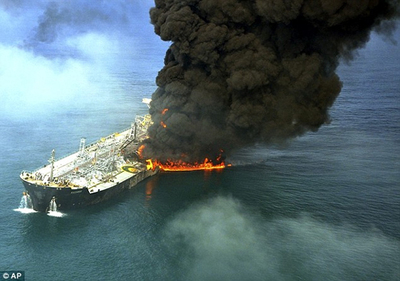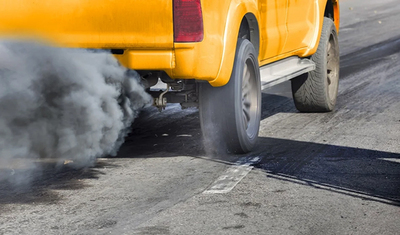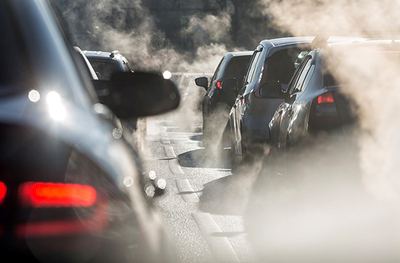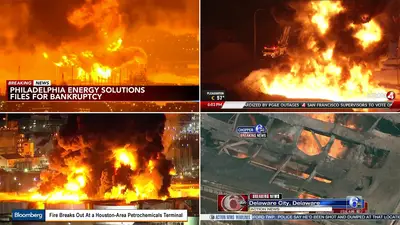SLAM! Shutting the File on the Tyler Lark Anti-Ethanol Study +VIDEO
 |
Continuing to make sense out of nonsense
 Marc Rauch |
Author of THE ETHANOL PAPERS and YES, TIN LIZZIE WAS AN ALCOHOLIC
Exec. Vice President/ Co-Publisher
THE AUTO CHANNEL
Jason Fenske is a man who produces and posts a large collection of viewer-friendly technical videos on YouTube. He does this under the banner "ENGINEERING EXPLAINED." Jason is a personable presenter with an "Andy of Mayberry" smile. He speaks English in a clear manner that's neither too fast, nor too slow. He tackles lots of common subjects, and as his banner name suggests, he explains engineering details. I've watched and enjoyed a number of his videos.
Back in August 2018, Jason produced a video titled "Is Ethanol Bad For Your Car's Engine?"
I was directed to that video in October 2018 by a visitor to TheAutoChannel.com. This person believed that Jason's video included some information that proved my ethanol advocacy position to be wrong. I watched the video and then wrote a fairly long response to the information presented in that video. I posted those comments on Jason's YouTube page, below the video window, on or about October 3, 2018. I also sent him an email that same day that included my full comments.
In short, I wrote that I enjoyed the video and thought it was great. As I explained at the time, I felt the video wasn't great because the information Jason provided was especially correct, but because he:
"...Brought to life a rather dull study and present enough accurate information that it helps to dispel many aspects of the anti-ethanol rhetoric that generally exists. The study concludes that neither
ethanol by itself, nor ethanol blended with gasoline causes any greater wear on the piston ring or cylinder bore of a gasoline-optimized internal combustion engine as compared to ethanol-free gasoline."
This 1980 study "Effects of Alcohol Fuels on Engine Wear" is just one of several studies conducted over the decades with the same conclusion: Ethanol fuel does NOT cause any greater wear on engines
than ethanol-free gasoline (E0). (SEE page 41 of the study by CLICKING HERE.)
I then responded to many of the comments left by other readers who largely regurgitated typical false information about ethanol. Included in those mini rebuttals I provided explanations and several links to external resources.
Unfortunately, Jason never replied to me - not to the comment I posted on the YouTube page, nor to the email I sent directly to him. This means he never received it, or never read it, or didn't care, or was afraid to engage me in a discussion.
Subsequent to October 2018, I re-watched that video at least twice, and posted some updated comments. Jason never replied to my updated comments.
Needless to say, he was under no obligation to reply to me or to even acknowledge that he read what I posted. I understand this.
However, the problem that I have with his lack of response is that I didn't post cryptic poorly worded sentences as an unidentified person with no standing on the issue. Jason has responded to others who have left comments, so it's not as if he has a rigid policy of not responding to people. Even if my email didn't get through to him, I know that my comments were posted on the comments section of the YouTube page, and that they're still there. I know this because I scrolled through three years of comments and saw that they were still there. If my comments presented incorrect or abhorrent information I think he would have removed them or responded to me. Similarly, if he felt my comments were helpful and instructional, I think he would have replied in some fashion. So, that only leaves a fear of engaging in discussion with me. I'm sorry if I frightened him, it wasn't personal. But, you know, the truth can sometimes be frightening.
Personally, I respond to people who write to me, or post comments of my reports and videos. I think it's the right thing to do, and I think it helps flesh out the subject matter. And I have a great time engaging in literary swordsmanship. I think it shows I understand the issues, that I am willing to discuss and debate them, and that I have the intestinal fortitude to stand behind what I believe. Sometimes I even learn things from the information provided by the other party. Usually, only people who don't know what they're talking about, or who have no faith in the veracity of their position, don't respond to me.
In any event, last night I came across a new ethanol-related video that Jason produced and posted a few days ago on his YouTube pages. This new video is titled "America Was Wrong About Ethanol - Study Shows."
Using the search feature on his YouTube page, it appears that this new video is the first "ethanol" video he's produced and posted since the August 2018 ethanol video.
This new video, which is about 30% longer than the earlier video is based on information that was presented in a study authored by an assistant scientist at the University of Wisconsin at Madison, along with several associated academics. This person's name is Tyler Lark. As the title of Jason's video indicates, this study claims that ethanol fuel was incorrectly evaluated and that a more correct modern evaluation shows that ethanol fuel is bad for America and the world.
Jason presents the information as if he knows for certain that the information contained in the study is correct. He didn't question any of it. He didn't cite any independent resources - other than those mentioned in the study - in an attempt to verify the findings. Jason tries to illustrate the study's finding with a white board and nifty graphics, but he didn't explain anything. Tyler Lark made some huge mistakes in his study, and Jason made some serious errors in his descriptions of Lark's study. I'll get to the errors in a few moments.
Moreover, Jason apparently never reached out to anyone who might have an opposing view. I don't know if he knows of any people who oppose the information presented by Mr. Lark and his associates, but we're here, and he could have easily found us by doing a simple Google search. For example, I've written and published a few stories in rebuttal to the Lark UofW study. One was to the original website that published information about the study: Faulty Outcomes From Faulty Environmental Reports.
Another was to Greg Gutfeld of FOX News who featured the Tyler Lark report on his show in mid-February: Greg Gutfeld Presents Idiotic, Completely Wrong Attack on Ethanol.
As I've written in the above rebuttals to Tyler Lark and Greg Gutfeld, the report released by Mr. Lark and his associates is not a modern evaluation of ethanol fuel production, it is nothing more than a rehashing of the nonsensical studies written by a bug professor from Cornell, named David Pimentel, and an associate from UC Berkeley named Tad Patzek. Those anti-ethanol studies were sponsored by the oil industry, and they were roundly attacked and refuted almost immediately after their publication. The attacks came from many sides including other academics and their schools. One of the harshest rebukes came from Mr. Patzek's own institution, the University of California at Berkely. Interestingly, Mr. Patzek left Berkeley soon after the disputation and joined the staff at the University of Texas at Austin - you know, Texas, as in the home of the so-called "American" oil industry. Patzek is now Professor of Chemical and Petroleum Engineering and Director of the Upstream Petroleum Engineering Center at the King Abdullah University of Science and Technology in Saudi Arabia - you know, Saudi Arabia, as in the home of the global oil industry.
Now, you might say, Pimentel and Patzek's fallacious studies have nothing to do with Tyler Lark's study, and that he doesn't even cite them in the study's footnotes. That's correct, the names David Pimentel and Tad Patzek are not listed in the study. However, Tyler Lark and his fraternity club do cite fallacious studies from people like Tim Searchinger and John DeCicco, who did rely on the Pimentel-Patzek crap. Therefore, it's safe to say that the Lark study is tainted by the Pimentel-Patzek reports.
Wait, hold it, I don't want to be safe and just say that the Lark study is tainted by the Pimentel-Patzek effluvia. Let me rephrase: The Lark study is downright infected with the horse manure published by Pimentel-Patzek's oil industry sponsored lies and gross exaggerations!
THE HEART OF THE MATTER
At the heart of the Lark condemnation of corn ethanol is the claim that ethanol produced from corn is not cleaner than E0 gasoline, but that it is at least 24% dirtier. Their rationale for this is a set of extraneous circumstances and aspects of crop production that they say present a truer picture (this was the primary conclusion of the Pimentel-Patzek findings). And this claim is the basis for the allegation that corn ethanol does not meet the requirements of the Renewable Fuel Standard (RFS) for a biofuel to provide a 20% green house gas (GHG) reduction compared to E0 gasoline.
Well, I have some big news for everyone: Ethanol produced from corn is not 24% dirtier than E0 gasoline, it is not even 24% cleaner than E0 gasoline. Ethanol produced from corn, or sugarcane, or sorghum, or molasses, or agave, or switchgrass is 100% cleaner than E0 gasoline... it is 500% cleaner than E0 gasoline... it is 1,000% cleaner than E0 gasoline. It's the difference between black and white. Some people say that there are 134 shades of black. So how many shades of color are there between absolute white and absolute black? It's virtually an infinite number. Similarly, there's virtually an infinite percentage of cleanliness between ethanol and E0 gasoline. What's the proof of this? Watch these videos:
What these videos show is that at any increment of time, whether it's a nanosecond, a second, a minute, two minutes, and at every interval between, there is an increased amount of dirty emissions produced by gasoline. There are 60 billion nanoseconds in a minute, so my saying that there is an infinite percentage of cleanliness between ethanol and gasoline is as correct as could be.
If Jason, or anyone, doubts the results shown in these videos, do the test yourself. They are very simple to do. You don't need video equipment to record the test, just some 100% ethanol and E0 gasoline, two glass containers, and a match to light it up. If you need the names of companies where you can buy 100% ethanol and E0 gasoline let me know because I have the names and contact info. By the way, I first did this test myself with a chemistry set my parents gave me as a present for my 12th birthday. But it wasn't until years later that I realized what the results fully meant.
Want more proof? Do you really need more proof?
Okay, here's proof of the comparative cleanliness of ethanol from a more recent hands-on experiment: For several years I owned a non-flex fuel 2002 Ford Taurus sedan. I purchased it in 2012 specifically to conduct long-term ethanol testing. I ran the car on all levels of ethanol-gasoline blends, from E10 to E85, although I mostly used blends in the E30 to E40 range (I splash blended these combinations by pumping in E10 and then E85 - calculating the gallons I arrived at approximate blend averages). In 2013, I was required by the State of California to get a smog test for the car. The document below shows the results.
As you can read, the state's smog test is to determine the amount of particulate matter emitted by automobile engines. It measures three categories: Hydrocarbons (HC), Carbon Monoxide (CO), and Nitrogen Oxide (NO).
In order to pass the smog test, my car had to at least meet allowable "parts per million" (PPM) levels at two different engine speeds, as set for this specific type of vehicle:
HC - 52/36 The average passable score was 4/4 My car's score 1/1
CO - 49/46 The average passable score was 0.01/0.01 My car's score 0.00/0.00
NO - 424/711 The average passable score was 27/26 My car's score 0/0
On the day of the smog test, I was running the vehicle on E40 (approximate). My non-flex fuel car didn't beat the passable and average scores by just 20%, my car beat the required scores in each instance by more than 100%. In fact, the mechanic who conducted the tests did the test twice because he thought his machine was malfunctioning. After recalibrating, he did it again, and he recorded the same results!
Any claim about E10 (10% ethanol and 90% gasoline) not being cleaner than E0 misses a very important point, and that point is that if E10 is only 20% cleaner than E0 gasoline, it is only 20% cleaner because the blend has so much filthy gasoline in it.
Consequently, even if the E10 fuel being used today as part of the RFS legislation does not meet the 20% benchmark set in the RFS legislation, then the answer is to increase the level of ethanol and decrease the level of gasoline in the blend. If you want the biofuel to be 30% cleaner than E0 gasoline, increase the amount of ethanol. If you want it to be 40% cleaner, increase the amount of ethanol a bit more. If you want the blend to be 50%, 60%, 70% cleaner than E0, you just have to increase the amount of ethanol. If you want the fuel to be infinitely cleaner than E0 gasoline then do not use any gasoline.
Fortunately, and coincidentally, every single gasoline-powered vehicle on the road today - regardless of age or manufacturer - can immediately use blends that have significantly higher levels of ethanol than E10, with no modifications needed to the engines or fuel systems. Furthermore, with simple software updates, all fuel injected vehicles with on-board computers will allow the use of E85 fuel (85% ethanol - 15% gasoline). Engines with carburetors will require slight adjustments or an easily installed after-market device to allow up to and including E85.
FIGURES DON'T LIE, BUT LIARS FIGURE
Now, let me go back to the absurd calculations written about by Tyler Lark, Pimentel & Patzek, Searchinger & DeCicco, etc., etc. Mr. Lark and friends attack ethanol's cleanliness by adding in extraneous issues that complicate and obfuscate the truth. This is the exact bovine-manure that Pimentel and Patzek claimed. What they all intentionally ignore are all the extraneous issues related to gasoline production. And unfortunately, Jason Fenske played along with this obfuscation by pointing to his diagram and saying crude oil simply flows from the ground to refining to a vehicle's fuel tank. At :42 seconds into the video, he a ctually says "a direct one-way path." This is either a completely disingenuous mischaracterization, or a stupendously puerile understanding of the process and the damage created by the oil industry that catastrophically affects all humans, other animals, and our environment.
There is no direct path from the ground to the fuel tank. There are layers upon layers of incidents and circumstances that must be dealt with to find the oil. To start with, there's the drilling, fracking, strip mining, and "accidental" petroleum oil disasters. If you're unsure what that looks like, here's some pictures:
By comparison, this is what corn fields look like:
A video about rolling oil and gasoline bomb trains:
Then the crude oil has to be transported from the ground via long and short hauls to a refining station - some of these long hauls are trans-oceanic from the other side of the world. Then there are the long and short hauls to wholesale and retail distributions points before the fuel finally gets pumped into a vehicle's fuel tank. All of these steps require the use of dirty fuels that adds GHG to the air. The production of all the equipment, and the operation of much of the equipment, requires the use of dirty fuels that results in the production of green house gases spewing into our air and water.
There are the common, everyday examples of how gasoline and petroleum diesel fuels poison our air and water after the petroleum oil fuels are poured into a vehicle's fuel tank:
Here's some refinery fires that break out around the country - note that these fires didn't occur in out of the way rural areas, but in densely populated cities:
And then there's the aspect of the petroleum oil industry that every ethanol-hater wants to avoid talking about: The use of our military and war.
Every major war (and some minor wars) since 1914 has been fought over crude oil and its related gases. The most current war in Ukraine, which may erupt into WWIII any day, is about crude oil and related gases. The primary use of the American military is to protect and defend global oil. Not only does every bullet, gun, tank, plane, ship, torpedo, bomb, missile, and rocket require the use of fuels in multiple steps of the manufacturing processes, but the everyday use of each of these items requires the use of dirty fuels and the never-ending production of GHG emissions. Although wars may not be fought every single day of every single year, the training for war does go on every single day of every single year, so this is a constant source of GHG emissions.
On top of all the "hardware" required by the military, there's the "soft" materiel that's required, such as uniforms, boots, and hats. Zippers and buttons don't make themselves. The machinery and material requires fuel. The materials used to build the facilities to house the military personnel, the beds for them to sleep on, and the food to eat all require significant amounts of dirty fuel to be used to produce, clean, and cook them.
If Tyler Lark and the other "figurers" are going to calculate the fuel required to run a farm tractor when calculating the "truth" about corn ethanol production, then how can the total amount of petroleum oil-based fuels and GHG emissions not be calculated when adding up the true cost of the use of petroleum oil fuels? It's almost impossible to believe that Lark and Jason, and others like them, don't take these items into account...BUT THEY DON'T
And I haven't finished yet... Do you know how many American soldiers, sailors, airmen, and marines have ever lost their lives defending the production and distribution of ethanol?
NONE!
Does anyone need to be told how many American soldiers, sailors, airmen, and marines have lost their lives fighting in wars (or preparing to fight in wars) to defend the production and distribution of petroleum oil and its fuels? Do you need to be told how many of our brave military have been permanently disabled? Do you need to be told how many civilians have lost their health and lives to the poisonous emissions from the use of petroleum oil-based fuels?
Aren't these lives important? Why did Tyler Lark and Jason Fenske not mention this?
At the beginning of Jason's video, he briefly ... very briefly ... mentions the many decades of use of tetraethyl lead in gasoline, as if it was and still is of no lasting consequence.
Jason talks about a Harvard study that calculated the recycled use of carbon dioxide because of farming, but he didn't mention that much of the lead that was emitted into the air from the use of leaded gasoline still remains in our environment, and every time that dirt along a roadway is stirred up, or at a construction site, or from a bomb exploding, the lead gets recycled back into the air that we breathe.
Some people may not know this (and if you don't then God help us), but carbon dioxide is essential to all life on planet Earth. Carbon dioxide (CO2) is as essential to life as oxygen (O2) is. Oxygen is produced by green plants. For green plants to exist they need carbon dioxide. For green plants and all related food crops to grow, they must have carbon dioxide - there is no substitute for CO2. Plowing the land helps to release the CO2 that the plants need. Unless you want to kill green plants and end the production of oxygen, you cannot take the study written by the Harvard nitwit seriously. Just to be clear, Harvard, Yale, Princeton, Cornell, Stanford, and Berkeley have graduated and employed as many morons as any other school, and one way or another all anti-ethanol morons have benefitted from monies provided by the oil industry.
One more aspect about the calculation of ethanol versus non-ethanol gasoline: If ethanol is not used to increase the octane in gasoline, then more aromatics have to be used. Aromatics include BENZENE, which means that the increased use of aromatics includes the increased use of benzene. In a toxicological review study released by the American Petroleum Institute (API) in 1948, they said this about benzene:
"... exposure to benzene produces rapidly increasing symptoms of tightening of leg muscles, dizziness, excitation, and pallor, followed by flushing, weakness, headache, breathlessness, apprehension of death, and constriction in the chest. The pulse becomes rapid, and the color blue. Visual disturbances, tremors, and muscular weakness are encountered. The victim may lose consciousness and pass into coma, or may develop acute mania and delirium. Convulsions are fairly frequent. Death may occur almost at once or several hours to several days following exposure."
In final conclusion to their study, the API acknowledges that:
"... the only absolutely safe concentration for benzene is zero."
Let me be precise on two things here: The first is that the American Petroleum Institute is the primary mouthpiece of the petroleum oil industry. It was founded by Rockefeller and Standard Oil to advocate for petroleum oil and to disparage competition to petroleum oil and its products. Yet, API published this study knowing full well that benzene is an integral part of all gasoline formulas.
The 2nd thing I want to be precise about is the word "zero." Zero means none, 0%, the absence of any amount. So if zero is the safe amount of benzene in our air, how and why could anyone claim that ethanol (that contains no benzene) is less healthy than gasoline (that always includes benzene)? The presence of benzene in gasoline automatically disqualifies gasoline in any competition with ethanol as to which is cleaner. Only individuals with brains addled by decades of tetraethyl lead and benzene can make the claim that ethanol is dirtier than gasoline.
The oil industry knows that benzene is deadly, and they want to use more of it!
WAIT, THERE'S STILL MORE
The Tyler Lark travesty also claims that the introduction of the RFS caused corn prices to rise by 30%, and other crops to rise by 20%. This is totally wrong. It is part of the general "food vs. fuel" myth floated by the petroleum oil industry a few decades ago and then amplified around 2008 due to a terrible miscalculation made by the World Bank. The cause of the rise in corn and food prices shortly after the enactment of the RFS was merely coincidental. The actual price increases were tied to the sharp increase in the price of crude oil and to subsequent commodity speculation. The "food vs. fuel" argument is dead. I detail its annihilation it in my report "BAM! Closing the Door to the Food vs. Ethanol Fuel Argument". The only people who seriously continue to spread the food vs. fuel lie are addle-brained nitwits and those on oil industry payrolls - and the two may not be mutually exclusive of each other.
IN CLOSING...
All negative comments about ethanol fuel are incorrect. They are either lies, exaggerations, or myths. They were mostly invented by the petroleum oil industry.
Ethanol doesn't harm engines, it cleans engines. It doesn't suck water out of the air, but it will absorb water that naturally forms because of condensation. Gasoline can't do this so people have to resort to using engine additives that can often cost as much as 2 or 3 gallons of gasoline. All liquids are corrosive, especially water. However, ethanol is less corrosive and compatible with more types of rubber, plastic, and metal than gasoline and aromatics. BTU values (energy content) are irrelevant when discussing internal combustion engines. Ethanol use does not affect the price of food.
If someone is disseminating negative information about ethanol they are WRONG! I don't care who they are, which school they graduated from or teach at, who they know, and what political office they may occupy. There are no negatives to using ethanol as a fuel.
If ethanol-haters can stop spreading lies about ethanol long enough for consumer demand to grow, and we need a supply of ethanol that exceeds corn crop growth, there are many other sources that can be used, some that yield many more gallons per year, per acre, than corn...and some don't require the use of additional water and fertilizer. But increasing consumer demand for ethanol fuel is very difficult while there are so many professors and scientists and politicians and video producers with their hands out to oil industry checkbooks who are willing to spread lies.
If the purpose of denigrating ethanol is to kill off internal combustion engines in order to clear the way for electric vehicles, then the perpetrators of the ethanol lies are simply making a bad situation worse. The notion that electric vehicles will save us from man-made catastrophic climate change is a fantasy. We are decades away from a ubiquitous EV future, and maybe never. If we don't replace filthy, deadly gasoline with clean ethanol then we'll continue to suffer from many decades of petroleum oil poison and wars. I lay all this out in my recent report "The Real Story On Electric Vehicles"l.
I can understand why people employed by the oil industry would choose to not learn the truth about petroleum oil and its products. I can understand why they would help to spread lies, even when they know the information is a lie. They need jobs and paychecks. I definitely could understand why Jason would produce his latest video if the intention was purely to get to the bottom of the issues. But I can't understand why he would produce this video without challenging the assertions or at least coming up with his own researched information that appears to confirm what was in the Tyler Lark study. To just blindly rubber stamp the report is, in my opinion, disappointingly dishonest.
And if I consider Jason's actions dishonest, you can imagine the utter contempt I have for anyone involved in the Tyler Lark study.



















